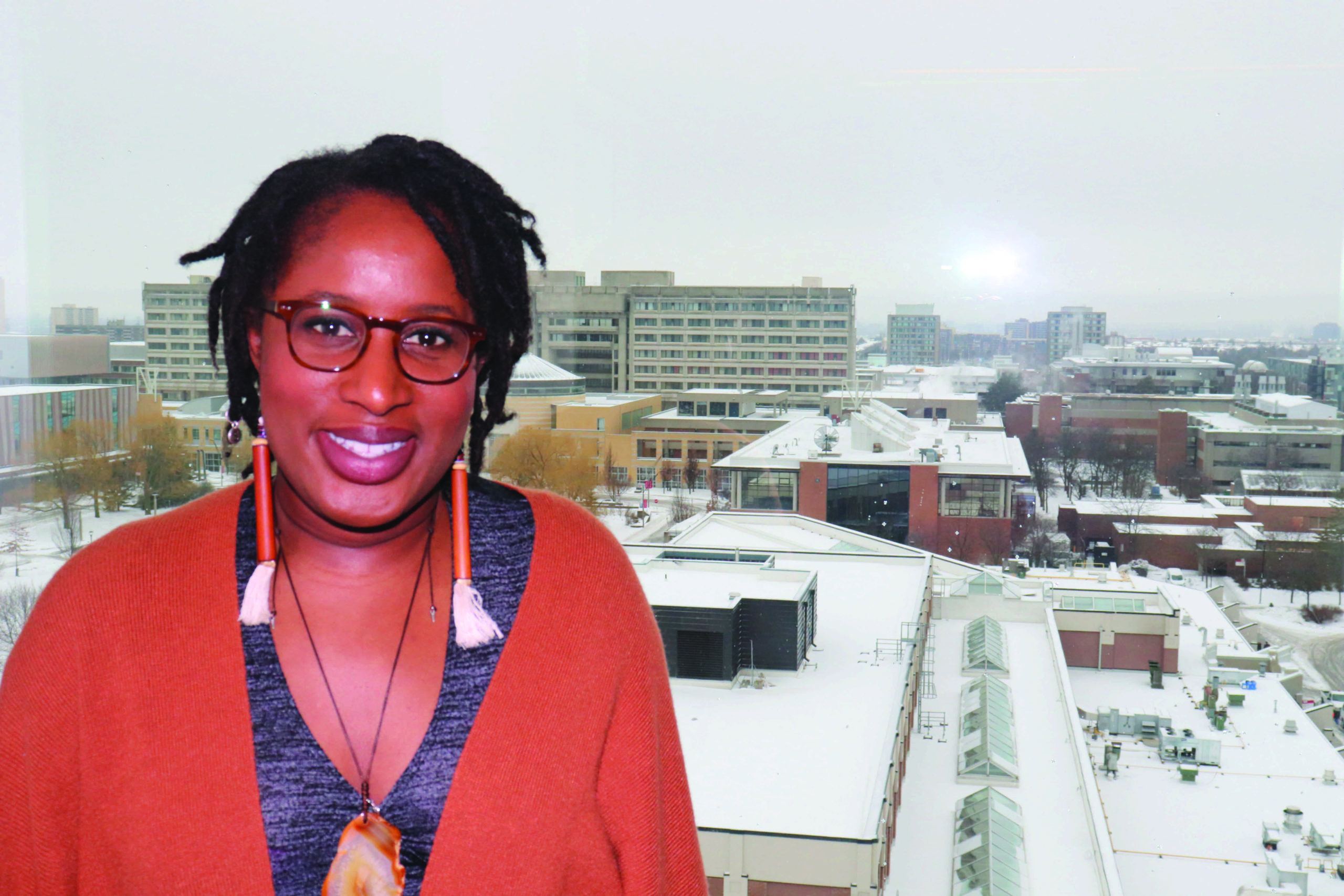Baldon Neita Mitchell | Contributor
Featured Image: PhD Candidate Shaunasea Brown. | Stella Isaac
PhD Candidate Shaunasea Brown, explored the dynamic of performative Blackness while researching Black Canadian women in hair politics during her masters in humanities. Pursuing her masters provided her with the opportunity to talk about, and research, what it means to be a Black woman in Canada, and how Black women wear their hair in styles which may hinder their employment opportunities—it is used as a way to express how Blackness is constructed.
“There was a time when I did alter my hair; but when I started doing more research into why Black bodies are policed unlike any other, and I saw where those ideas came from, I stopped it,” Shaunasea says, now wearing shoulder-length dreads.
Though she was able to conduct the research that spoke to her experiences, Shaunasea noticed there is still a way academia is set up where the classes do not speak to the kind of research you want to do. A feeling that makes you “question the validity of your work,” she says.
Shaunasea points out the degree requirements for a PhD often require Black students, studying Black topics, to design their own courses because programs are designed to facilitate topics other than studies encompassing Blackness.
By the time Shaunasea began her PhD, she had already taken the maximum number of courses outside her program, and most of the Black courses offered at the MA level. “It makes you think that there is no space for you here, because of the way the system is set up and the type of work academia promotes,” she says.
This is a key element for Black students within this institution, which is an experience that can oftentimes be alienating. It points to the larger issue that there’s a lack of presence and representation of Black faculty. “All of my committee members are Black women: Professors Andrea Davis, Christina Sharpe, Kamala Kempadoo. And having a community that allows you to see the other possibilities for yourself is incredibly important,” Shaunasea says.
Seeing faculty that are similar to yourself allows you to feel that your presence is valued in the space—quite frankly, it is empowering. However, having a community is just a start. These, often systemically exclusionary moments, are what make spaces such as: the York University Black Graduate Students Collective, Women PhD Magic, Center for Research on Latin American and the Caribbean, and a Black Studies Reading Group extremely necessary for MA and post-graduate students.
Shaunasea also points to a larger issue. Hiring Black faculty is not enough, there has to be a substantial increase in the amount of scholarship relating to Black studies.
“There’s so much out there to explore in terms of Black experiences, and who better to do this research than the ones who live and breath it daily,” Shaunasea explains. “The power lies in telling stories. Whoever’s voice gets heard is where the power lies; we need to have more Black students in Black studies at the graduate level.”
We need to have more Black scholars in the arena demanding our voice be heard, capturing our voice accurately, and reminding the world of our beauty. If you find yourself wondering, why exactly should I pursue post graduate education, with all the negative machinery of academia telling me otherwise, consider Shaunasea’s reminder: “Our voice is at stake.”


